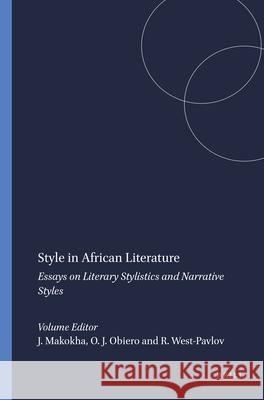Style in African Literature : Essays on Literary Stylistics and Narrative Styles » książka
Style in African Literature : Essays on Literary Stylistics and Narrative Styles
ISBN-13: 9789042034761 / Angielski / Twarda / 2012 / 444 str.
Postcolonial and contemporary African literatures have always been marked by an acute sensitivity to the politics of language, an attentiveness inscribed in the linguistic fabric of their own modes of expression. It is curious however, that despite the prevalence of a much-touted 'linguistic turn' in twentieth century theory and cultural production, language has frequently been neglected by literary studies in general. Even more curiously, postcolonial literary studies, an erstwhile emergent and now established discipline which has from the outset contained important elements of linguistic critique, has eschewed any sustained engagement with this topic. This absence is salient in the study of African literatures, despite, for instance, the prominence of orature in the African literary tradition right up to the present day, and sporadic meditations on the part of such luminaries as Achebe and Ngugi. Beyond this, however, there has been little scholarly work attuned to the multifarious aspects of language and linguistic politics in the study of African literature. The present volume aims to rectify such lacunae by making a substantial interdisciplinary and transcultural contribution to the gradual reinstatement of the 'linguistic turn' in African literary studies. The volume focuses variously on postcolonial and transcultural African literatures, areas of literary production where the confluence of several languages, whether indigenous and (post)colonial in the first case, and local and global in the second case, appears to be a central and decisive factor in the formation and transformation of the continent and its peoples' cultural identities.











